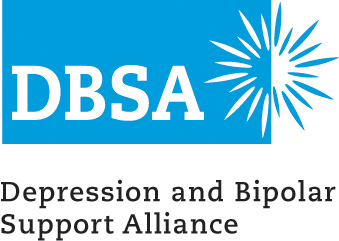- Education Topics
- Achievement Gap
- Alternative Education
- American Education Awards
- Assessment & Evaluation
- Education during COVID-19
- Education Economics
- Education Environment
- Education in the United States during COVID-19
- Education Issues
- Education Policy
- Education Psychology
- Education Scandals and Controversies
- Education Reform
- Education Theory
- Education Worldwide
- Educational Leadership
- Educational Philosophy
- Educational Research
- Educational Technology
- Federal Education Legislation
- Higher Education Worldwide
- Homeless Education
- Homeschooling in the United States
- Migrant Education
- Neglected/Deliquent Students
- Pedagogy
- Sociology of Education
- Special Needs
- National Directories
- After School Programs
- Alternative Schools
- The Arts
- At-Risk Students
- Camps
- Camp Services
- Colleges & Universities
- Counties
- Driving Schools
- Educational Businesses
- Financial Aid
- Higher Education
- International Programs
- Jewish Community Centers
- K-12 Schools
- Language Studies
- Libraries
- Organizations
- Preschools
- Professional Development
- Prom Services
- School Assemblies
- School Districts
- School Field Trips
- School Health
- School Supplies
- School Travel
- School Vendors
- Schools Worldwide
- Special Education
- Special Needs
- Study Abroad
- Teaching Abroad
- Volunteer Programs
- Youth Sports
- For Schools
- Academic Standards
- Assembly Programs
- Blue Ribbon Schools Program
- Educational Accreditation
- Educational Television Channels
- Education in the United States
- History of Education in the United States
- Reading Education in the U.S.
- School Grades
- School Meal Programs
- School Types
- School Uniforms
- Special Education in the United States
- Systems of Formal Education
- U.S. Education Legislation
- For Teachers
- Academic Dishonesty
- Childcare State Licensing Requirements
- Classroom Management
- Education Subjects
- Educational Practices
- Interdisciplinary Teaching
- Job and Interview Tips
- Lesson Plans | Grades
- Professional Development
- State Curriculum Standards
- Substitute Teaching
- Teacher Salary
- Teacher Training Programs
- Teaching Methods
- Training and Certification
- For Students
- Academic Competitions
- Admissions Testing
- At-Risk Students
- Career Planning
- College Admissions
- Drivers License
- Educational Programs
- Educational Television
- High School Dropouts
- Higher Education
- School Health
- Senior Proms
- Sex Education
- Standardized Testing
- Student Financial Aid
- Student Television Stations
- Summer Learning Loss
Depression and Bipolar Support Alliance

Basic Information
Address: 730 N. Franklin Street, Suite 501
Chicago, IL 60654-7225 USA
Phone Number: 800-826-3632
Fax Number: 312-642-7243
Email: webmaster@dbsalliance.org
Additional Information
President: Peter Ashenden
Mission Statement:
The mission of the Depression and Bipolar Support Alliance (DBSA) is to provide hope, help, and support to improve the lives of people living with depression or bipolar disorder. DBSA pursues and accomplishes this mission through peer-based, recovery-oriented, empowering services and resources when people want them, where they want them, and how they want them.
Membership Fee: http://www.dbsalliance.org/site/PageServer?pagename=donate_donateonline
Area Served: International
Services Offered:
DBSA reaches nearly five million people through our educational materials and programs, exhibit materials, and media activities.
DBSA reaches nearly five million people through our educational materials and programs, exhibit materials, and media activities.
Conferences/Speakers: http://www.dbsalliance.org/conference2009
Fundraisers: http://www.dbsalliance.org/site/PageServer?pagename=events_eventsmain
Support Groups: http://www.dbsalliance.org/site/PageServer?pagename=support_findsupportlanding
Detailed Organization Information:
The Depression and Bipolar Support Alliance (DBSA) is the leading patient-directed national organization focusing on the most prevalent mental illnesses. The organization fosters an environment of understanding about the impact and management of these life-threatening illnesses by providing up-to-date, scientifically based tools and information written in language the general public can understand. DBSA supports research to promote more timely diagnosis, develop more effective and tolerable treatments, and discover a cure. The organization works to ensure that people living with mood disorders are treated equitably. DBSA was founded in 1985.
Slogan: We've Been There. We Can Help.




